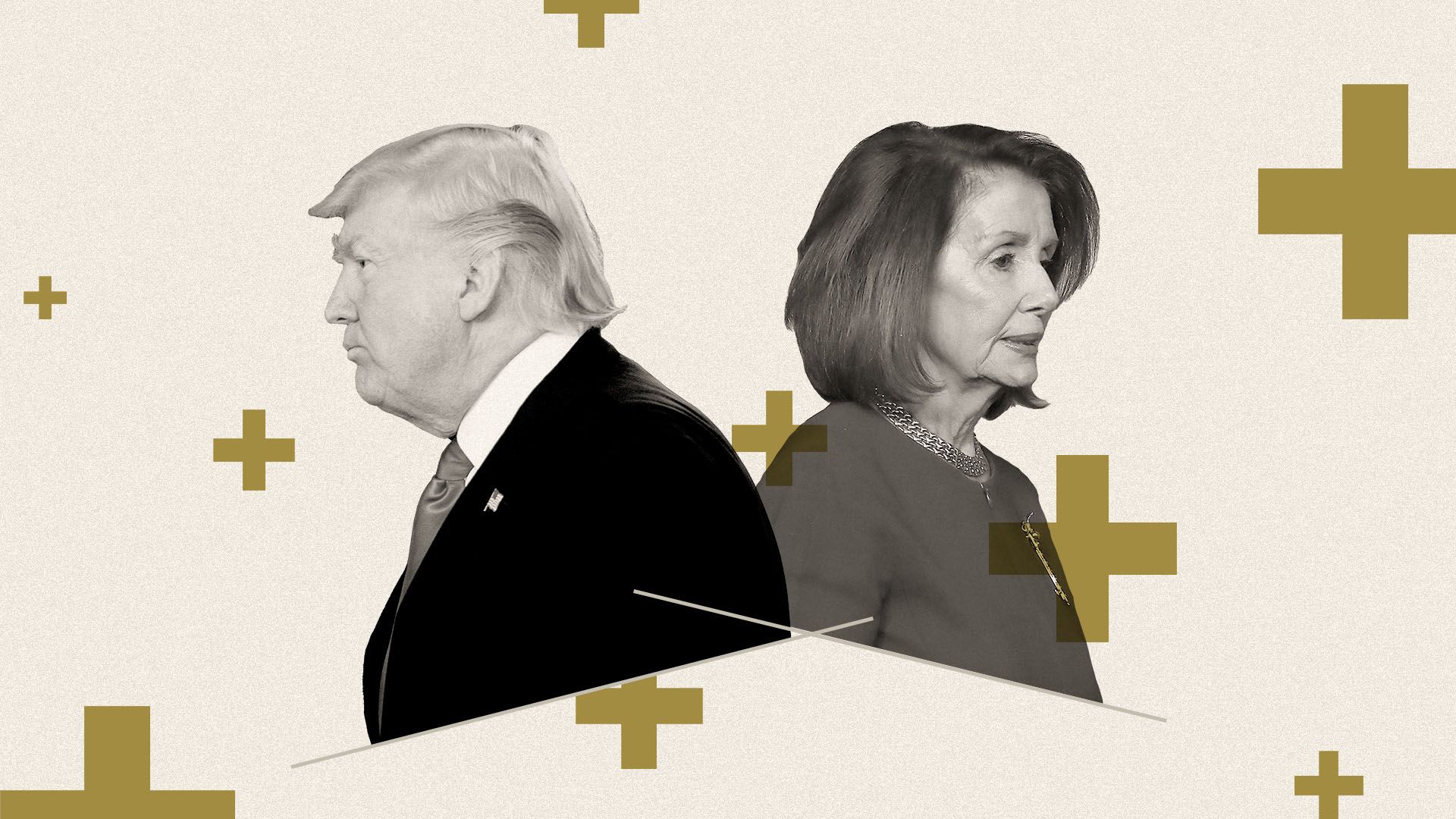The drug-pricing deal that got away
Add Axios as your preferred source to
see more of our stories on Google.

Photo Illustration: Sarah Grillo. Photos: NICHOLAS KAMM/AFP via Getty Images and Mark Wilson/Getty Images
Neither Congress nor the Trump administration is likely to get much done this year on drug prices, despite the clear political upside to doing so.
Between the lines: Polls consistently show that drug prices are a top concern for voters. President Trump and House Speaker Nancy Pelosi also seem to agree a lot on the policy. But a deal keeps getting further away.
Where it stands: The House is set to vote on Pelosi's bill next week, though if push ever comes to shove, she has a small and diminishing incentive to help Trump claim a big victory right before his reelection campaign.
- The White House has thrown its weight behind a bipartisan bill in the Senate, but leadership has never been particularly warm to that effort, and rank-and-file Republicans have also backed away from parts of the plan.
The big picture: The pharmaceutical industry almost always gets its way in Washington.
- The industry's top two trade organizations, together, spent more than $35 million on lobbying in 2018, more than they've ever spent before.
- That doesn't include individual companies' contributions, nor does it include any of the industry's campaign contributions, which are substantial.
Trump's regulatory agenda on drug prices isn't faring much better. The administration has abandoned several of its ideas.
- It's now working on a proposal to tie Medicare's payments to the prices European countries pay, but Trump would probably need a second term in order to see that one through.
And prices keep going up. The most expensive drug in the world — a gene replacement therapy that treats spinal muscular atrophy — came to market earlier this year, with a sticker price of $2.1 million in the U.S.
- That drug is a groundbreaking new therapy, but prices also continue to rise for old, familiar products that people depend on every day — most notably, insulin.
Go deeper:
